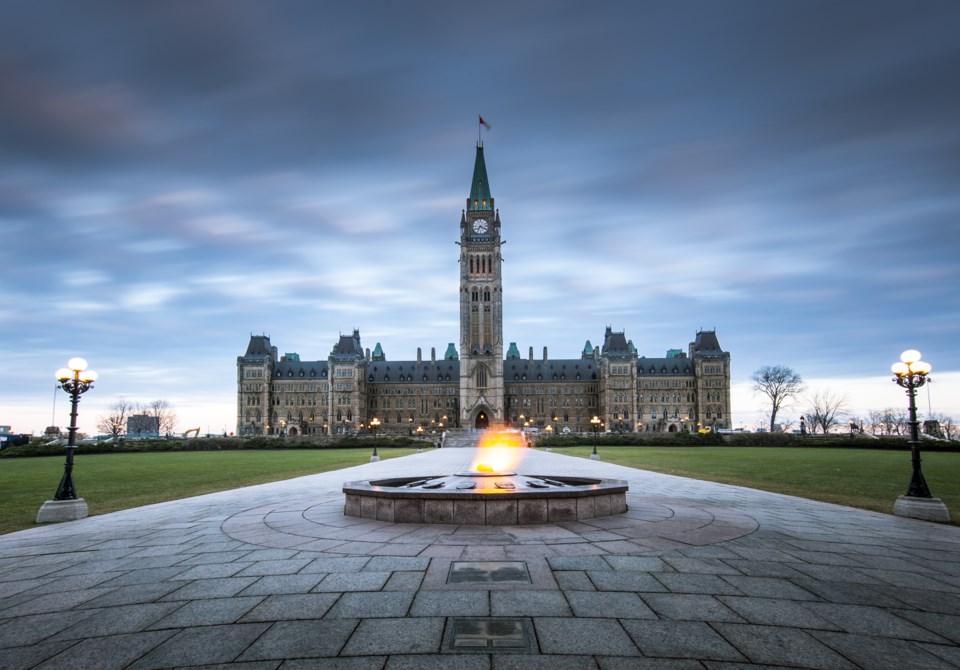Prime Minister Justin Trudeau has said the government will end its use of the , 10 days after he invoked it in response to continued protests in opposition to vaccine and mask mandates. The powers provided by the act are time-limited, and would have expired in 30 days if it had not been revoked or if the Senate had voted it down.
The House of Commons took historic action on Feb. 21, voting to confirm the motion of declaring a national emergency. The motion — “” — was approved by a vote of 185 to 151. The , with Prime Minster Trudeau’s Liberal Party and New Democratic Party Members of Parliament supporting the motion, while Conservative and Bloc Québécois members opposed it.
. Understanding how the Emergencies Act works indicates what can happen next. Once confirmed, it remains in effect by the means of a transparent, albeit obscure, set of procedural steps, putting Canada in its highest possible state of national emergency. But once the emergency has passed, the government can end its use of the act.
A time of its choosing
Under the act, the federal government can take extraordinary enforcement powers to maintain public order. These include, but are not limited to: ; ordering banks that are suspected of being used to further the “freedom convoy” protests () and .
Several factors such as the behaviours of the protesters and the actions of politicians determine when the government ends its use of the act. A key factor is if and when those persons engaged in creating social disorder decide to cease and desist.
If the government determines that the risks that threaten Canada’s stability have subsided, then it can make the choice to end the use of extraordinary powers at a time of its choosing. In his remarks today, Trudeau said that the
Trudeau had indicated that the federal government . At the same time, .
Thirty days?
From the strict perspective of the Emergencies Act procedures, there are several ways it could have ended. The act requires the approval of both the House of Commons and the Senate, and if the Senate votes it down, the act is no longer be in force. When the Senate began debating on Feb. 22, as police had ended the occupation of downtown Ottawa.
Actions could have been taken by the House of Commons to overturn the act. However, given the vote on Feb. 21, unless something had changed politically, opposition parties wouldn’t have been able to muster enough votes to repeal the act.
With a Senate confirmation, the Emergencies Act remains in place for 30 days. Then the act automatically expires.
After 30 days, if the federal government deems it necessary, , pending another round of Parliamentary approval.
Devil in the details
For the Emergencies Act to come into power, it requires several government documents and mechanisms.
The starting point was the . Another key document comes from the Privy Council Office with the , which is when an order needs to be enacted quickly. In this case, is the Order-in-Council for the Emergencies Act.
The description of special emergency measures and extraordinary powers that are in effect can be found in . Specifically, and define the terms of reference for and list all of the extraordinary powers granted under the Emergencies Act.
What the Emergencies Act does is function as an existing framework on which temporary emergency powers can be based. When invoked, its .
The indicates the position taken by elected Members of Parliament on this consequential issue.
Expiration date
Use of the Emergencies Act can end if the authorities decide that the threat of social unrest is gone and they ask the prime minister to make the decision to give up the extra powers, or if opposition politicians can assemble a majority vote against it in the upper or lower house. It’s not yet clear if police made a request to end the use of emergency powers.
When a government is in the position to exert extraordinary powers, the consequences can be grave. For example, the use of the War Measures Act in peacetime to manage the 1970 FLQ was problematic due to .
While it remains to be seen how history will view this tumultuous period of crisis, we can draw one conclusion at present. The initiation and first week of Canada’s Emergencies Act .
This is an updated version of an article originally published on Feb. 23, 2022. It reflects Prime Minister Justin Trudeau’s decision to revoke the use of the Emergencies Act.
![]()
Jack L. Rozdilsky is a Professor at York University who receives funding from the Canadian Institutes of Health Research as a co-investigator on a project supported under operating grant Canadian 2019 Novel Coronavirus (COVID-19) Rapid Research Funding.



